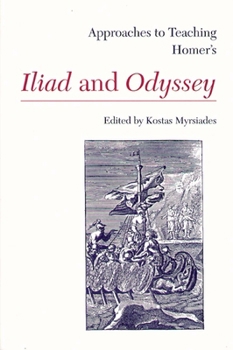Approaches to Teaching Homer's Iliad and Odyssey
Homer's epics usually appear first in anthologies used for the general literature courses required of most college and high school students throughout the country. His influence extends beyond the confines of English and classics departments into seminars offered in comparative literature, history, philosophy, and the social sciences. This volume in the Approaches to Teaching World Literature series describes how teachers present Homer in the classroom and convey to students the importance of his epics in Western culture.
Like other books in the series, this one is divided into two parts. The first part, "Materials," reviews editions and translations of the Iliad and Odyssey and surveys secondary readings and audiovisual materials for both students and instructors. The second part, "Approaches," consists of seventeen essays by specialists and nonspecialists on teaching Homer in upper-division literature seminars, in undergraduate surveys, in composition courses, and in disciplines other than English and classics. The essays discuss backgrounds, influences, and themes and describe specific approaches, such as using the Iliad as a springboard for teaching literary history, examining what the Odyssey offers modern readers, and reading Aristotles's Poetics to glean insights into Homer's achievement.
Related Subjects
Education Education & Reference Literary Criticism Literary Criticism & Collections




